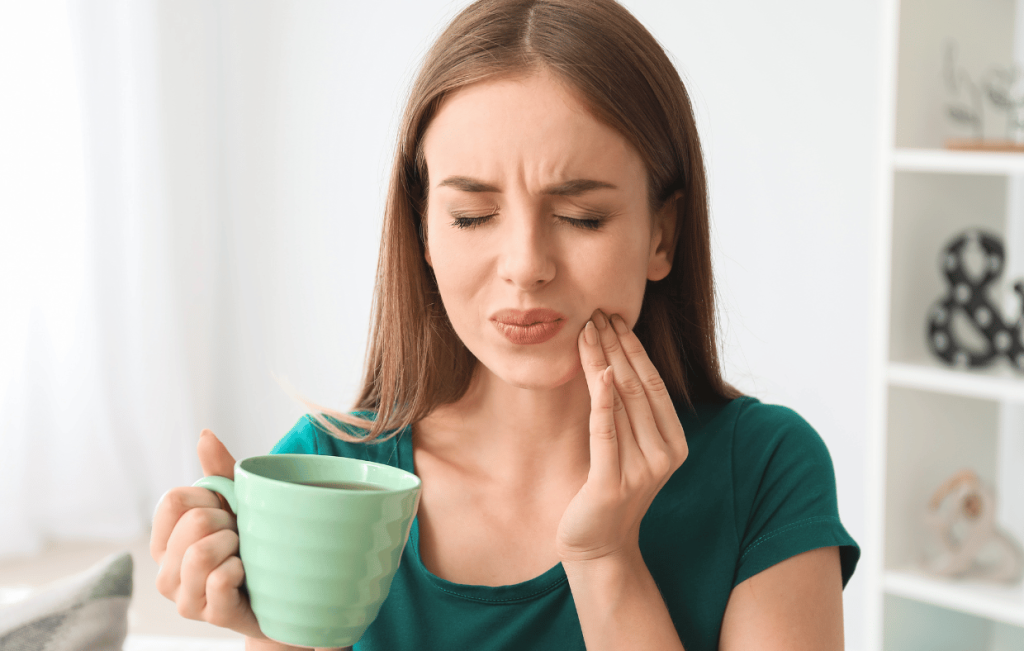Sensitive teeth can be an alarming and uncomfortable experience. So, what causes sensitive teeth all of a sudden & treatments? A sudden sensitivity, marked by sharp pain when encountering cold or hot temperatures, acidic foods, or even a gust of cold air, often points to an underlying issue within your dental health.
But what causes this sudden tooth sensitivity, and how can it be treated? This article delves into the many causes, symptoms, and treatments for tooth sensitivity, ensuring you have the tools to manage and prevent this condition.
Discover a powerful solution for dental health with this recommended product.

Understanding Sudden Tooth Sensitivity
Tooth sensitivity, also known as dentin hypersensitivity, occurs when the inner layer of the tooth, known as dentin, becomes exposed. Dentin houses microscopic tubules that lead directly to the tooth’s nerve endings, making it sensitive to various stimuli.
Common causes of dentin exposure include enamel erosion, gum recession, and root surface exposure, all of which can increase sensitivity.
Causes of Tooth Sensitivity
Multiple potential causes of tooth sensitivity exist. Understanding these causes is essential for determining the most effective treatment.
- Acidic Foods and Drinks: Acidic foods like citrus fruits, tomatoes, and sports drinks can erode the protective enamel layer on teeth, exposing the dentin and causing sensitivity.
- Tooth Enamel Erosion: Enamel erosion is often the result of acidic diets, certain medications, or poor oral hygiene. As enamel wears away, it exposes the inner layers of the tooth, leading to increased sensitivity.
- Tooth Decay: Cavities can penetrate the enamel and reach the dentin, causing sharp pain when exposed to hot, cold, or sweet foods.
- Gum Recession and Gum Disease: Periodontal disease, or gum disease, can cause gums to recede, exposing the roots of the teeth. This exposure can lead to severe pain, especially when consuming hot or cold foods.
- Cracked or Chipped Teeth: A cracked tooth can expose the tooth’s inner layers to bacteria and extreme temperatures, causing pain and sensitivity.
- Recent Dental Procedures: Dental work, such as fillings, crowns, or root canals, can sometimes cause temporary sensitivity as the nerves inside the teeth adjust to the changes.
- Hard-Bristled Toothbrushes and Excessive Brushing Force: Brushing too hard or using a hard-bristled toothbrush can wear down enamel and gum tissue, leading to sensitivity at the gum line.
- Grinding or Clenching Teeth: Bruxism, or teeth grinding, wears down the enamel and exposes the inner layers of teeth, causing chronic pain and sensitivity.
- Poor Oral Hygiene and Plaque Buildup: Neglecting oral hygiene leads to plaque buildup, which can erode the enamel and irritate the gums, causing discomfort.
- Sinus Infections: Pressure from sinus infections can affect the roots of your upper teeth, leading to discomfort and sensitivity.

Symptoms of Tooth Sensitivity
People with sensitive teeth often experience:
- Sharp Pain: Sudden, sharp pain in response to cold, hot, sweet, or acidic foods.
- Sensitivity to Cold Temperatures: Cold drinks or even breathing in cold air can trigger discomfort.
- Pain with Pressure: Biting down can cause sudden tooth pain, especially in cracked teeth.
- Sensitivity at the Gum Line: Discomfort around the gum line, often due to gum recession.
Treatment Options for Tooth Sensitivity
Several treatment options are available for tooth sensitivity, ranging from at-home remedies to professional dental care.
1. Desensitizing Toothpaste
Specialized toothpaste containing compounds like potassium nitrate can help block pain signals from the tooth to the nerve endings. Regular use may reduce sensitivity.
2. Fluoride Treatments
Fluoride strengthens enamel, reducing the exposure of dentin and improving the tooth’s resilience. Dentists can apply high-concentration fluoride varnish for a stronger effect.
3. Dental Bonding and Sealants
Dentists can apply bonding agents for more severe cases to cover exposed dentin or cracks. This protective layer shields the sensitive areas from external stimuli.
4. Mouth Guards for Teeth Grinding
If bruxism is causing sensitivity, a mouth guard can prevent further damage by reducing the pressure on your teeth.
5. Gum Grafts
For patients with significant gum recession, a gum graft can restore the gum line and cover exposed roots, reducing sensitivity and improving oral health.
6. Root Canal Therapy
For cases where sensitivity is due to nerve inflammation or decay reaching the tooth’s inner chambers, a root canal can remove the damaged tissue, alleviating pain.
7. Dietary Adjustments
Avoid acidic foods and sugary snacks that can erode enamel and increase sensitivity. Opt for a balanced diet with foods that promote enamel strength and oral health.

Prevention Tips for Sensitive Teeth
- Practice Good Oral Hygiene: Regular brushing with a soft-bristled toothbrush and gentle, circular motions can help preserve enamel and protect the gum line.
- Avoid Acidic Foods and Beverages: Limit intake of citrus fruits, sports drinks, and sugary foods that can accelerate enamel erosion.
- Use a Soft-Bristled Toothbrush: Soft-bristled brushes minimize enamel wear and protect the gum line from recession.
- Seek Regular Dental Care: Routine dental exams can detect issues early and prevent further damage that could lead to sensitivity.
- Use a Mouth Guard if You Grind Your Teeth: Protect your teeth from the constant pressure and damage caused by grinding, which can erode enamel over time.
- Consider a Desensitizing Toothpaste: Regular use can help manage sensitivity, especially if you experience mild discomfort.
Final Thoughts on Treating Tooth Sensitivity
Experiencing tooth sensitivity can be frustrating, but many treatment options are available to help alleviate discomfort. Identifying the exact cause with your dental team can lead to effective treatments, from simple at-home solutions to professional care.
With the proper dental hygiene practices and preventive measures, you can protect your teeth and avoid further enamel erosion, gum recession, and sensitivity. Regular visits to the dentist and proactive care are the best way to maintain healthy teeth and minimize pain.
For more information and solutions for sensitive teeth, explore this recommended product here.


